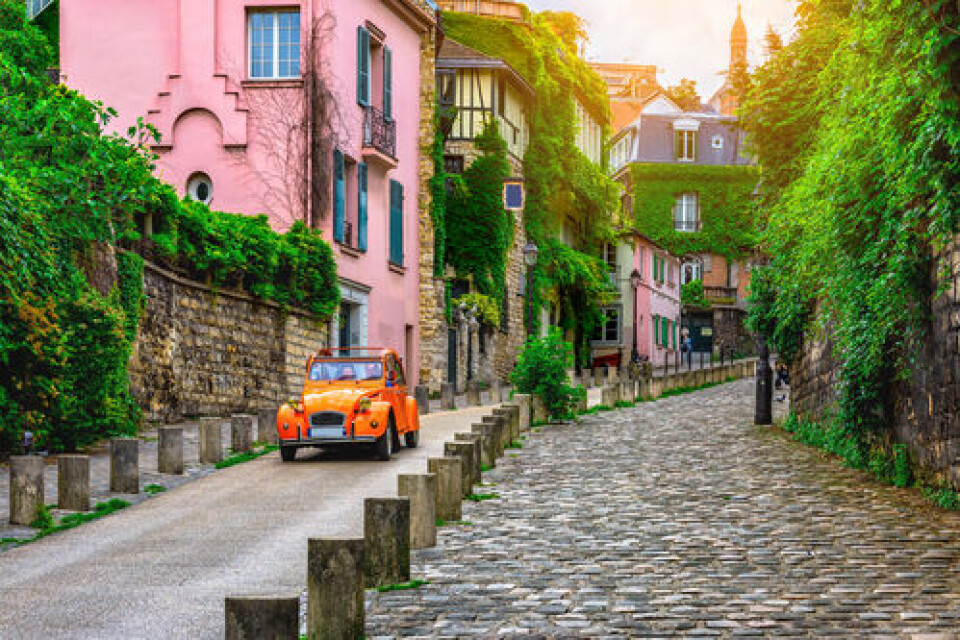-
How accurate are time estimates for French hiking paths?
Mathematical formula is basis for sign figures
-
My French cleaner is too familiar with me
Columnist Cynthia Spillman advises a reader on setting boundaries
-
Travelling during a residency card renewal: how can I show I am exempt from EES?
Tens of thousands of ‘Brexit’ cards are nearing expiry this year
What defines a classic car in France and what does it change?
There are pros and cons to registering your vehicle with a carte grise de collection

Reader Question: I have been told that my car can qualify as a collector’s car in France. How do I do this and what would be the advantages?
In France, a voiture de collection is a special designation for older vehicles - some of which are often referred to as ‘classic’ (or for the oldest cars ‘vintage’) in English.
For a car to be classified as such, it needs to be over 30 years old, be of a model that is no longer produced and must not have been modified in terms of technical performance or have had changes made to its motor or chassis.
Before 2009, cars classed as classic cars could not drive in certain areas but now they can drive anywhere in France.
Classic cars are even exempt from the existing and incoming rules on low emission ZFE zones.
If cars fall under these conditions, it is possible to update the vehicle registration document (carte grise) for the car to this status. This will show on your carte grise under the Z heading.
Not all cars that qualify are automatically granted classic car status and a number of steps must be followed before the car is officially awarded it.
Before applying for an updated vehicle registration, you need a certificate from either the car manufacturer or from the French Federation of Vintage Vehicles (FFVE) to prove that your car qualifies to be registered.
When this is done, you will need to apply for the new vehicle registration. This is done via an online process on the website of ANTS or by paying a professional to do it for you.
Depending on variables such as the age (if the car was manufactured before or after 1960) and weight (over or under 3.5 tons), slightly different information will need to be given. You can find the full list of requirements for each type of car here.
In theory, the turnaround for obtaining the certificate is fairly quick (around seven working days); it is the process with the FFVE that can take more time.
Once a car has been registered as a classic car it is difficult to change back. Doing so would include modifying the car to make it fit current standards, making the change essentially irreversible.
Less tests but restrictions on use
Cars that do receive classic status receive some benefits, though. These include having less strict and less frequent roadworthiness tests.
Certain pieces of safety equipment, such as seatbelts or rearview mirrors, that are usually required today but were not present at the time the vehicle was originally sold are not required to pass the contrôle technique (CT) test, the equivalent of an MOT or roadworthiness test in France.
Also you do not need to display a sticker confirming you passed the test on your windshield, like you do for non-classic cars.
For vehicles under 3.5 tons, the CT only has to be taken once every five years instead of every two, and for certain cars from before 1960 a test is not necessary at all except on a voluntary basis.
You can also use special number plates with a black background on classic cars.
Another advantage is that for foreign cars it is sometimes easier to register the car as a classic car than via an ordinary carte grise, as you do not need a certificate of conformity. Insurance is also sometimes cheaper (special deals are available).
However, these cars are not allowed to be used for professional reasons such as transporting goods or people for payment, leaving them purely for personal usage.
Related articles
Explainer: The rules of France’s contrôle technique car checks
Rare 1924 French car to be sold at auction, estimated price €60-80,000
























